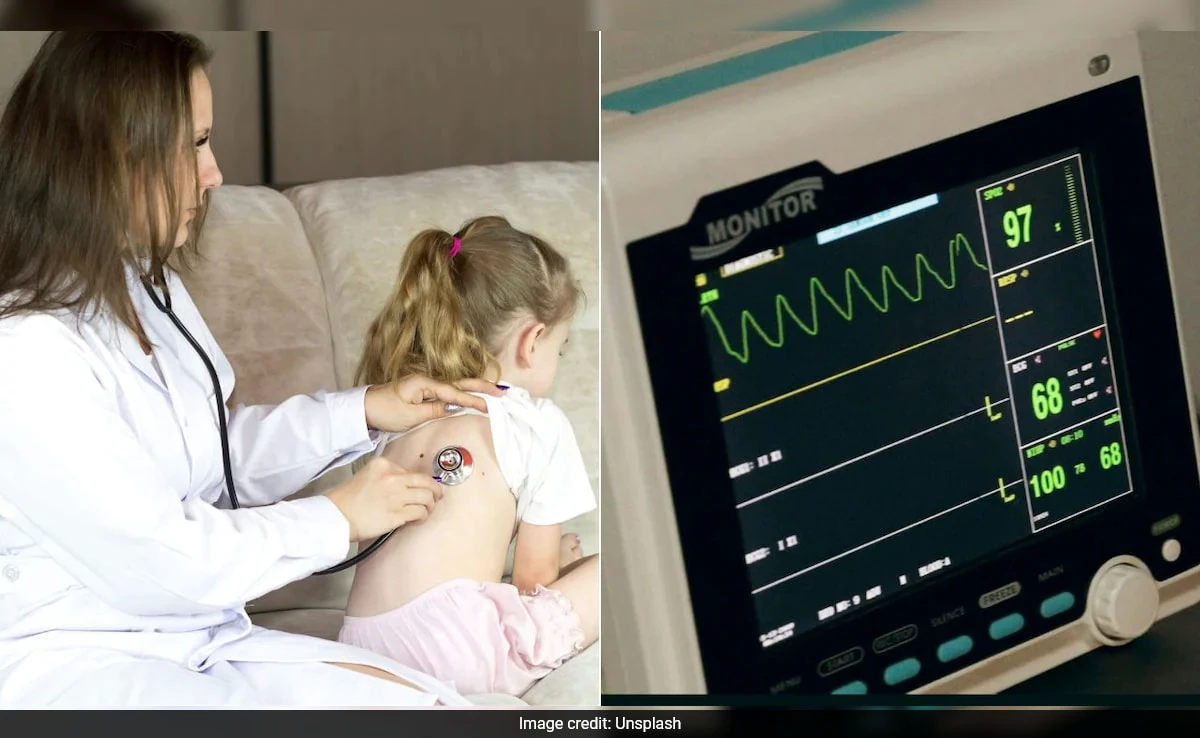A nine-year-old girl in reportedly of a heart-related issue at school, officials said on Wednesday (July 16).
As per reports, the doctors concluded that she died of a “heart attack” and was given a preliminary treatment for the same.
She “dropped her lunchbox and collapsed” during break time around 11:00 am on Tuesday. “We were all on school grounds at the time, so we rushed her to the hospital,” Nand Kishore, principal of Adarsh Vidya Mandir in Danta, said. The principal added that for kids to faint in school is not uncommon, but children mostly recover. However, her case was different.
As we wait for concrete information regarding her health or any other pre-existing complications, it’s scary to even think that such cases are rising among children.
What causes sudden cardiac arrest in children?
“Sudden cardiac arrest in children, though rare, can occur due to undiagnosed underlying heart conditions like congenital heart defects, arrhythmias, or genetic disorders such as hypertrophic cardiomyopathy, Dr Vittal Kumar Kesireddy, a Senior Paediatrician, CARE Hospitals, Banjara Hills, Hyderabad, told NDTV.
The girl had a slight cold and was absent from school for the last two to three days, the principal said. “In some cases, viral infections affecting the heart (myocarditis) or electrical conduction problems can also be triggers. Often, these conditions go unnoticed because symptoms may be mild or absent until a major event happens,” Dr Kesireddy added.
“In some cases, sudden cardiac arrest occurs with minimal stress, during activities such as eating or at rest, which emphasises the importance of analysing the patient correctly, even when there is no prior symptomatology in children,” Dr Deepak Ugra, Paediatrician, Lilavati Hospital, Mumbai, told NDTV.
Are such diseases becoming common among children?
There’s a growing awareness that some lifestyle factors, like poor diet, rising obesity, and lack of physical activity, can contribute to early-onset cardiac issues. “The alarming increase in childhood obesity and the incidence of type 2 diabetes also increases the risk. Being informed, routine health checkups help to detect abnormalities that may have previously been overlooked entirely,” Dr Ugra said.
“Many cardiac arrests in young children are due to genetic or structural heart conditions that are not preventable through lifestyle changes alone,” Dr Kesireddy said.
“Early detection is key”
There are preventive measures, especially for children with a family history of heart disease or sudden death. Many silent cardiac conditions can be detected with a simple ECG or echocardiogram.
“Long-term prevention will come from developing healthy lifestyle habits: a balanced diet, daily physical activity, limited screen time, and no energy drinks or stimulants for young children,” Dr Ugra said.
A word to the parents
Parents should not ignore warning signs like fainting during exercise, unexplained chest pain, or a family history of sudden cardiac death. “Routine medical check-ups, ECGs for children at risk, and genetic counselling where relevant can help,” Dr Kesireddy said.
The parent can also ask that the schools be trained to handle cardiac emergencies by having first aid protocols and access to defibrillators for a timely response. They should have automated external defibrillators (AEDs) on site and have staff trained to use them.
